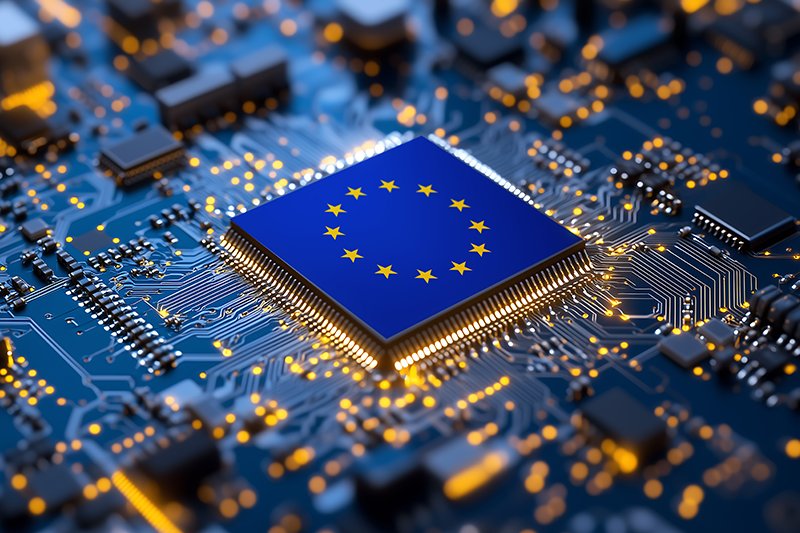- Fares Laroui
- October 21, 2021
What is digital sovereignty and why is it important for businesses
Whenever we share a simple photo on social media or send an email to a colleague, we often don’t have an idea (and some of us don’t even care) on where that data would be stored, or which country has jurisdiction over that piece of content. For us end-users, these are questions that we shouldn’t worry about, right?
At the end of the day, convenience and ease of use is what we look for in an application whether in our personal or working lives.

Content
However, for policy makers especially in the European Union, these are questions that have sparked a debate on data privacy and digital sovereignty. The latter – digital sovereignty – would be the topic of today’s blog post.
First, we are going to define digital sovereignty as a concept and why it has become a subject of increased interest by governments in recent years. Then, we will shed light on the potential impact of digital sovereignty on businesses and individuals alike.
However, for policy makers especially in the European Union, these are questions that have sparked a debate on data privacy and digital sovereignty. The latter – digital sovereignty – would be the topic of today’s blog post.
First, we are going to define digital sovereignty as a concept and why it has become a subject of increased interest by governments in recent years. Then, we will shed light on the potential impact of digital sovereignty on businesses and individuals alike.
What is digital sovereignty?
To grasp a better understanding of what digital sovereignty really means, we would have to start with a definition of sovereignty itself.
In general, sovereignty is a political concept that represents the power of an independent state over a geographical area and the people living there; it is also the character of a state that is not subject to the authority of any other state.
Throughout history, state sovereignty has often led to some sort of economic and industrial sovereignty with governments able to take actions based on the best interests of their people.
However, following the rapid advancements in technology, digital sovereignty has emerged as a new concept. In short, it represents the capacity of a state to regulate and have control over the technology in use (be it hardware or software). And to put it simply, in today’s extremely connected digital world, few countries were able to achieve digital sovereignty while others have just started to make progress.
tools and information
Why does digital sovereignty matter?

FREE WHITE PAPER
Types of Digital workplace solutions
The modern workplace has evolved significantly in recent years, with advancements in technology, the growing number of tools …
Benefits of digital sovereignty for businesses
1. Benefits of digital sovereignty for businesses
It goes without saying that the dependence of businesses worldwide on proprietary solutions has never been greater. Data dating back to 2016 shows that in France, for example, the adoption of Office 365 grew from 22.4% to nearly 50%, while the adoption of G-Suite grew to 40%. And these statistics were prior to Covid-19.
Following the global pandemic, a lot of businesses didn’t have a choice but to adopt digital suites and video conferencing tools such as Zoom among many others.
This obviously had the potential to undermine the privacy of user data, as the transition to remote working happened at such a rapid pace and wide scale. Additionally, these new and emerging solutions (at least at the time) weren’t properly equipped to handle a sudden and huge increase in demand, which eventually led to many data breaches and leaks.
Betting on digital sovereignty may be the answer for European businesses, for example, and the reason is fairly simple. Businesses need to deploy solutions that are compliant with the host of regulations in place such as RGPD.
Recently, organizations from highly regulated industries such as Defense, Security and health, have expressed their willingness to deal with only local and complaint solutions, in order to guarantee the safety of their systems and data. Furthermore, countless RFPs in Europe for digital workplace solutions were only limited to local tech providers and hosting services.
2. Establish trust and transparency with both employees and clients
With the wave of widely publicized data breaches in recent years, the general public has become well aware of the growing influence of a few tech companies as well as the dangers associated with data privacy and unclear hosting procedures.
This has led to a diminished trust in well known and established tech providers and more trust on local ones.
For example, in France, 56% of respondents stated that they don’t trust GAFAM and stated that they are growing worried about the safety of their data. The remaining 44% leaned in favor of local providers (in this case French).
Referring to sovereign solutions may help businesses re-establish trust with both their employees and clients. As mentioned above, their compliance with regulations coupled with strong governmental backing reassures users and may prove to be a competitive advantage in the long term.

FREE WHITE PAPER
3. Enhanced services and customer support
4. Limit shadow IT and enable new ways of working
We cannot speak about the impact of big tech providers on businesses without referring to shadow IT. In short, shadow IT represents the use of tools, applications and platforms without the approval and knowledge of the IT department.
If employees don’t find any value in the solutions they have in place, then they will tend to use their own to get things done. And this is, of course, damaging on all levels: security, data privacy, costs, etc. But how can sovereign solutions rectify this situation?
The key isn’t necessarily in the solutions themselves, rather the whole strategic vision of businesses and governments alike. The improvement of local solutions and IT infrastructure is essential to limit the dependence of employees on alternative and foreign tech providers.
This would only be possible through the continuous backing of governments coupled with robust awareness programs to educate employees on the dangers of both shadow IT and non-compliant solutions.
Digital sovereignty is a topic that has gathered increased interest from governments and policy makers. Due to its huge importance politically and economically, we have seen many new regulations and proposed bills to help countries reduce (or entirely eliminate) their dependence on a handful of tech companies.
Progressively, end-users and small businesses started to have their say on which solutions they want, and leaning towards more sovereign and local solutions as a matter of national pride and the preservation of their digital identity.
FAQ
You will find here Frequently Asked Questions about digital sovereignty with all the answers in one place.
What is digital sovereignty?
In general, sovereignty is a political concept that represents the power of an independent state over a geographical area and the people living there; it is also the character of a state that is not subject to the authority of any other state.
Why is Digital Sovereignty Important?
With specific countries and tech giants gaining significant control over data hosting worldwide, more and more countries have had a hard time to control and regulate the data created, shared and consumed by their constituents.
What are the benefits of digital sovereignty?
Nowadays, the main challenge for businesses is to embrace digital transformation without running the risk of being completely dependent on specific tech companies and cloud providers.
- Guarantee compliance with data protection regulations
- Establish trust and transparency with both employees and clients
- Enhanced services and customer support
- Limit shadow IT and enable new ways of working
Related posts
- All
- eXo
- Digital workplace
- Employee engagement
- Open source
- Future of work
- Internal communication
- Collaboration
- News
- intranet
- workplace
- Knowledge management
- Employee experience
- Employee productivity
- onboarding
- Employee recognition
- Change management
- Cartoon
- Digital transformation
- Infographic
- Remote work
- Industry trends
- Product News
- Thought leadership
- Tips & Tricks
- Tutorial
- Uncategorized
Leave a Reply
( Your e-mail address will not be published)



